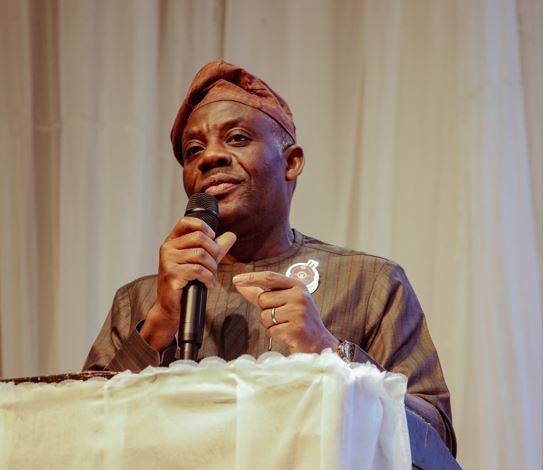Health
FG reiterates commitment to improving healthcare delivery

The Federal Government says it is intensifying efforts to enhance infrastructure and manpower in the health sector.
The Minister of State for Health and Social Welfare, Dr Tunji Alausa, made this known at the 65th Anniversary and Gala Night of the Nigeria Society of Physiotherapy (NSP), in Abuja on Thursday.
Alausa was represented at the event by the Chief Medical Director of the National Hospital, Prof. Muhammad Mahmud.
He said the federal government was committed to funding the health sector while also creating a conducive workspace for health workers.
He commended the NSP for being instrumental to rendering efficient services through practice, training, research, collaborations, advocacy and policy development.
He called for public-private partnership in the health sector to complement federal government’s efforts in building a better health sector for the country.
“Your efforts have significantly contributed to the overall improvement in healthcare, enhancing the quality of life for countless individuals.
“I commend your establishment of the Postgraduate Physiotherapy College (PPC), which has produced over 70 specialists in various physiotherapy specialties.
“These skilled professionals have augmented the healthcare workforce, complementing government efforts to improve healthcare delivery.
“The federal government is intensifying efforts to enhance infrastructure and manpower in the health sector,” he said
The keynote speaker at the occasion, Prof. Sylvester Igaww, appealed to medical practitioners to continue to improve themselves on new skills that Artificial Intelligence (AI) has brought into the sector.
Igaww, also the Deputy Vice Chancellor, Coal City University, Enugu, spoke on the theme: “Physiotherapy practice in Nigeria: the Past, Present, and the Way forward”.
He stressed that ‘Japa Syndrome’ was inimical to the health sector and hence the need to address the menace.
Also, the President of NSP, Dr Oyinlola Odusanya, said the society had facilitated the establishment of the Postgraduate Physiotherapy College in Nigeria.
This, he said, was a body saddled with the responsibility of training specialists with expertise clinical competence to match the demands of its clients in the ever dynamic world.
Odusanya identified challenges faced by the society among which are the devastating effects of brain-drain on the profession.
“Over 65 per cent of physiotherapists produced in Nigeria, practice abroad. In the last three years, over 2000 physiotherapists left the shore of our country, with less than 4000 Physiotherapists left in the country to manage over 200 million population.
“This development weakened us as a group and in terms of training, and reduced the number of experienced Physiotherapist to serve our various establishments,” he said.




 Davido's Net Worth & Lifestyle
Davido's Net Worth & Lifestyle 
